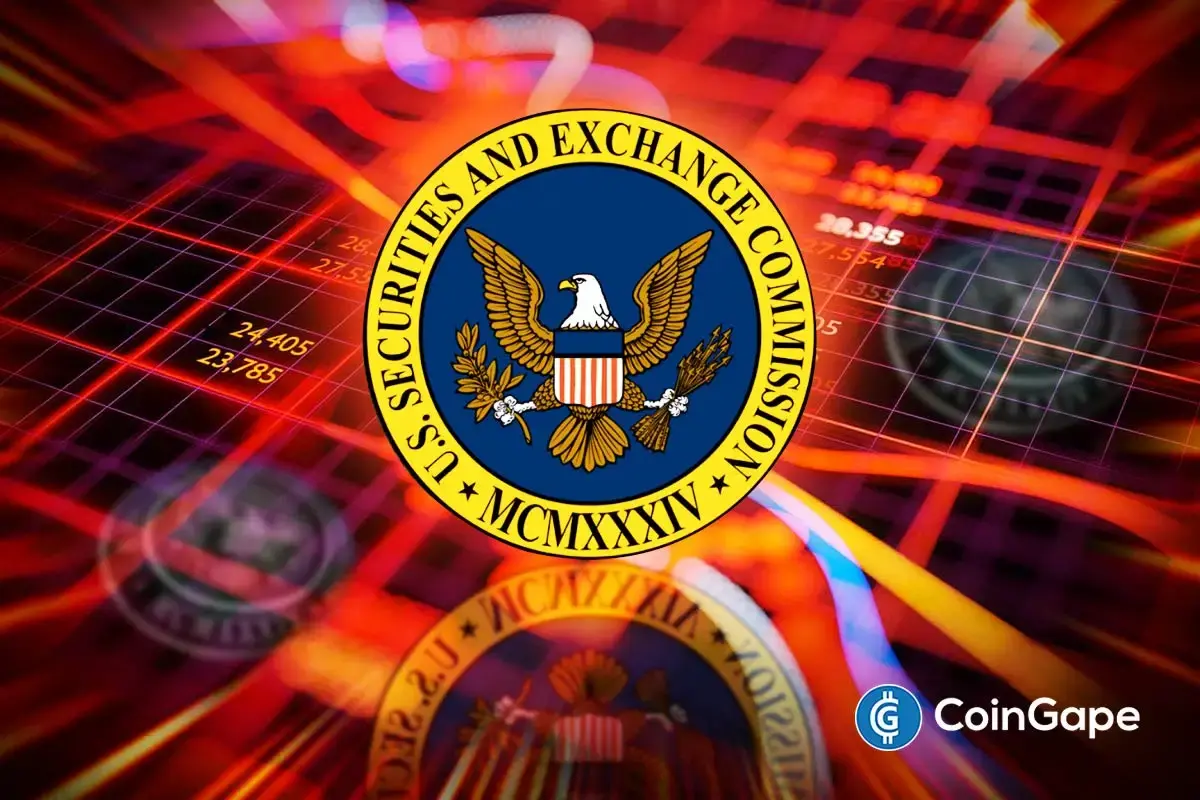SEC Forms International Task Force to Crack Down on Pump-and-Dump Schemes

Highlights
- The SEC has launched a Cross-Border Task Force to target transnational financial fraud.
- The initiative focuses on pump-and-dump schemes, particularly in crypto markets.
- SEC Chairman Paul S. Atkins stressed zero tolerance for bad actors exploiting international borders.
The U.S. Securities and Exchange Commission has launched a task force designed to tackle cross-border financial fraud. This is particularly focused on pump-and-dump schemes in the crypto markets.
SEC Launches the Cross-Border Task Force
In a recent X post, SEC Chairman Paul S. Atkins shared the news of the creation of the Cross-Border Task Force. This body will consolidate investigative resources and deploy the agency’s full legal arsenal against transnational fraud.
The task force’s early mandate will be to investigate market manipulation tied to foreign-based companies. This is primarily intended for those operating in jurisdictions such as China, where investor protections can be more challenging to enforce.
Commenting on the launch of the new task force, SEC Chairman Paul S. Atkins emphasized the regulator’s commitment to safeguarding investors.
“We welcome companies from around the world seeking access to the U.S. capital markets,” said SEC Chairman Paul S. Atkins. “But we will not tolerate bad actors – whether companies, intermediaries, gatekeepers or exploitative traders – that attempt to use international borders to frustrate and avoid U.S. investor protections”
The task force also shared in the press release that it will scrutinize auditors, underwriters, and other market gatekeepers who facilitate access to U.S. capital markets.
Margaret A. Ryan, Director of the Division of Enforcement, underscored that the task force will leverage the division’s expertise to address international manipulation.
“This initiative strengthens our ability to enforce securities laws and protect American investors from schemes designed to exploit global financial systems,” she said.
The formation of the task force also aligns with the SEC’s broader Crypto initiative, which seeks to create safer conditions for investors navigating the digital asset sector.
Rising Cases of Pump-and-Dump in Crypto
The launch comes at a time when pump-and-dump schemes are becoming more common in crypto. These scams typically target low-liquidity tokens, often meme coins or hastily created altcoins. These tokens are artificially inflated through aggressive promotion. After this, insiders cash out, leaving retail investors with steep losses.
One recent case involved a so-called CR7 token on the Solana blockchain. One of the many fake tokens jumped to a market cap of over $5 million before collapsing to zero. A prior fake version of the coin was even more damaging, draining $143 million from unsuspecting investors.
Furthermore, Rapper Kanye West’s coin debuted in August, only to collapse shortly after a brief surge. Similar patterns have also been seen with more celebrity-linked cryptos.
Beyond celebrity tokens, larger-scale scandals have shaken the market. The LIBRA project crashed amid allegations of insider trading and massive liquidity withdrawals. The team behind the token reportedly pulled $87 million from liquidity pools. It was also said that a sniper trader cashed out $107 million, causing the token to plunge by nearly 94%.
The SEC’s Cross-Border Task Force represents a decisive step in tackling the growing global nature of financial fraud.
Recent Posts
- Crypto News
Breaking: Rep. Max Miller Unveils Crypto Tax Bill, Includes De Minimis Rules for Stablecoins
Rep. Max Miller is circulating a 14-page draft of a proposed crypto tax bill in…
- Crypto News
XRP Holders Eye ‘Institutional Grade Yield’ as Ripple Engineer Details Upcoming XRPL Lending Protocol
Ripple engineer Edward Hennis has provided key details about the upcoming XRP Ledger (XRPL) lending…
- Crypto News
Michael Saylor Sparks Debate Over Bitcoin’s Quantum Risk as Bitcoiners Dismiss It as ‘FUD’
Strategy co-founder Michael Saylor earlier this week commented on the risk of quantum computing to…
- Crypto News
Ethereum Faces Selling Pressure as BitMEX Co-Founder Rotates $2M Into DeFi Tokens
Ethereum is under new sell pressure after a high-profile crypto trader sold his ETH assets…
- Gambling
Best Crypto Casinos in Germany 2025
If you’re a German gambler tired of strict limits and slow payouts at locally licensed…
- Crypto News
Tom Lee’s Fundstrat Warns Clients Bitcoin Could Fall to $60,000 Despite His ATH Public Forecast
Top asset manager Fundstrat has advised its private clients to expect a pullback in Bitcoin…